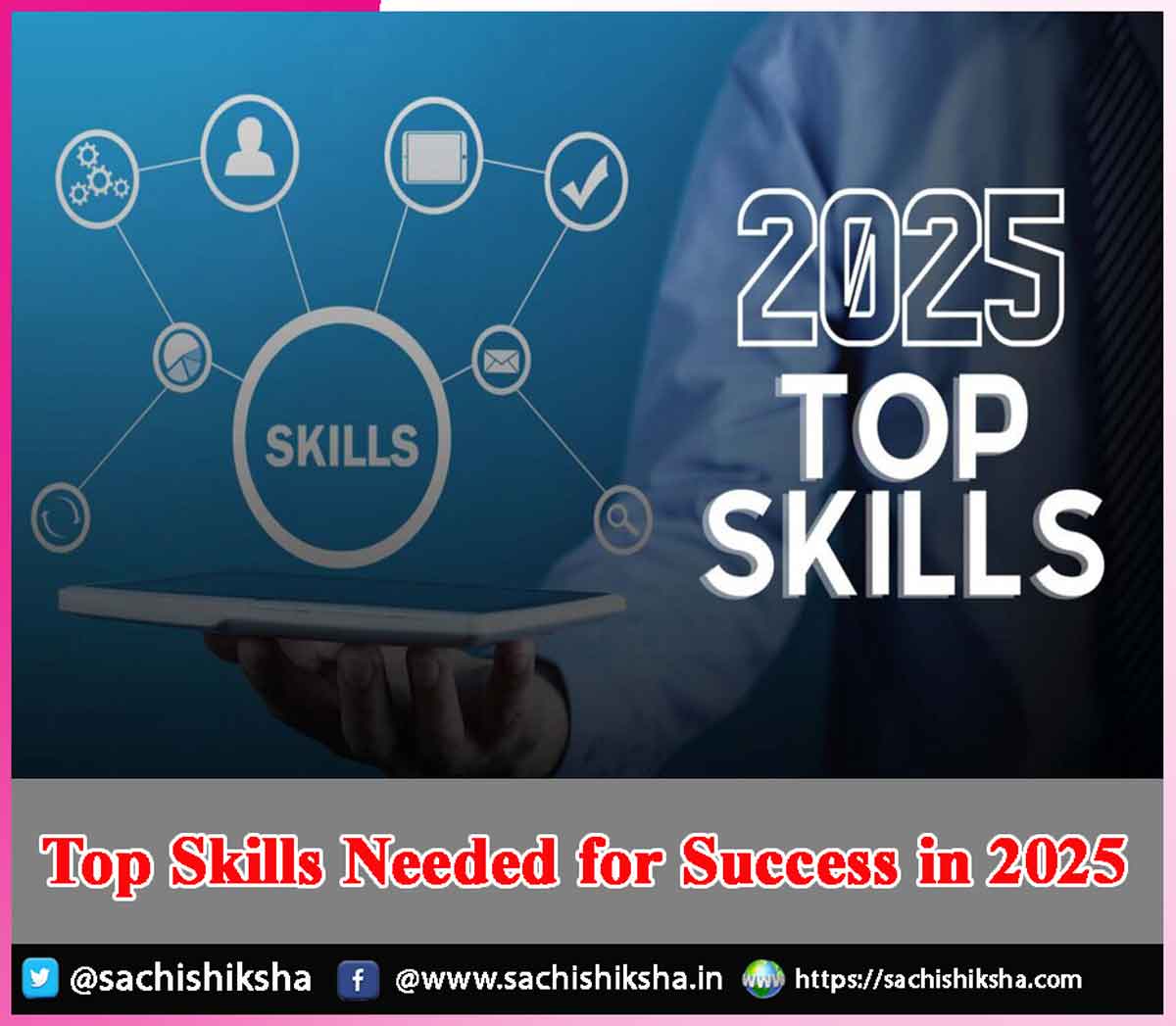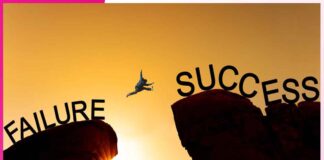Top Skills Needed for Success in 2025
Introduction: As we step deeper into the digital age, the nature of work continues to evolve. Rapid technological advancements, a globalized economy, and changing workforce dynamics mean that success in 2025 will depend on more than just technical expertise. Employers are increasingly looking for individuals who are adaptable, digitally fluent, and emotionally intelligent. Whether you’re a student preparing to enter the workforce, a professional looking to grow, or someone pivoting to a new career path, developing the right set of skills is key.

-
Table of Contents
Digital Literacy and Tech Savviness
In 2025, virtually every job will require a foundational understanding of digital tools and platforms. Whether you’re in marketing, finance, education, or healthcare, knowing how to leverage technology is crucial.
- Data Literacy: Understanding how to read, interpret, and work with data is becoming a baseline requirement. From dashboards to analytics tools, being data-literate means making informed decisions based on evidence.
- Cloud Computing and SaaS: Many companies are moving to cloud-based environments. Understanding how cloud platforms like AWS, Microsoft Azure, or Google Cloud work can be a huge advantage.
- Basic Coding and Automation Tools: While not everyone needs to be a software engineer, having some knowledge of coding (like Python, SQL, or JavaScript) or automation platforms (like Zapier, UiPath, or Power Automate) is a strong asset.
-
Critical Thinking and Problem Solving
As automation and AI handle more routine tasks, human employees will be valued for their ability to think critically and solve complex problems.
- Analytical Skills: The ability to break down problems, understand variables, and assess potential outcomes is vital. These skills help in strategic planning, decision-making, and operational improvement.
- Creative Problem Solving: Solving new problems often requires thinking outside the box. Creativity, combined with analytical thinking, helps teams find innovative solutions where none seem obvious.
-
Emotional Intelligence (EQ)
While IQ can get you in the door, EQ often determines how far you’ll go. Emotional intelligence is about understanding and managing your own emotions and being aware of others’ emotions.
- Self-Awareness: Knowing your strengths, weaknesses, and triggers allows for better performance and communication.
- Empathy: The ability to understand others’ perspectives is essential in leadership, team dynamics, and customer service.
- Relationship Management: Building and maintaining healthy work relationships improves collaboration and team morale.
-
Adaptability and Flexibility
Change is the only constant, especially in the modern workplace. The ability to pivot when needed and remain calm in uncertainty is a superpower in 2025.
- Resilience: The mental strength to bounce back from setbacks is essential, especially in fast-changing industries.
- Willingness to Learn: Lifelong learning is now a necessity. The most successful professionals are those who actively seek to upgrade their knowledge and skills.
-
Communication Skills
Good communication is at the heart of almost every successful endeavor. With hybrid and remote work models becoming the norm, being able to clearly express ideas across multiple formats is more important than ever.
- Written and Verbal Communication: Crafting clear emails, reports, and presentations ensures ideas are well understood.
- Digital Communication: Proficiency in tools like Slack, Zoom, Microsoft Teams, and asynchronous platforms helps teams stay connected.
- Storytelling: Being able to tell a compelling story—whether to pitch an idea, motivate a team, or sell a product—is an increasingly sought-after skill.
-
Collaboration and Teamwork
Even as roles become more specialized, cross-functional collaboration is critical for project success. Being a great team player is more important than ever.
- Remote Collaboration: In a global workforce, knowing how to collaborate with people across different time zones, cultures, and languages is crucial.
- Conflict Resolution: Differences of opinion are inevitable. Knowing how to manage and resolve conflict diplomatically is a sign of a mature and valuable employee.
- Active Listening: Great collaborators aren’t just talkers—they’re listeners. Active listening helps avoid misunderstandings and builds trust.
-
Leadership and People Management
Leadership is not confined to management roles. Whether you’re leading a team or a project, being able to inspire and guide others is a high-impact skill.
- Influence and Persuasion: Convincing others of your ideas without being overbearing is a key leadership trait.
- Coaching and Mentorship: Leaders help others grow. Being someone who uplifts and trains their colleagues adds massive value.
- Strategic Thinking: Good leaders see the bigger picture and help their teams align day-to-day work with long-term goals.
-
Cultural Intelligence and Diversity Awareness
As globalization increases, workplaces are becoming more culturally diverse. Understanding and respecting cultural differences helps in building stronger, more inclusive teams.
- Inclusion Practices: Professionals should know how to create environments where everyone feels valued and heard.
- Language and Cross-Cultural Communication: Knowing a second language or understanding cultural norms can help when working with global clients or teams.
-
Financial and Business Acumen
Even in non-financial roles, understanding the basics of how a business runs is beneficial. Knowing how your role contributes to overall business goals is powerful.
- Budgeting and Forecasting: Understanding how to manage and allocate resources wisely shows financial responsibility.
- Key Performance Indicators (KPIs): Knowing how to track performance using KPIs helps align your contributions with organizational success.
- Business Model Understanding: Grasping how your organization makes money and operates in the market adds context to your daily work.
-
Sustainability and Ethical Thinking
Companies are under increasing pressure to be socially responsible and sustainable. Employees who can think through the ethical implications of decisions will be in high demand.
- Environmental Awareness: Understanding sustainability principles and how to implement them in your work can set you apart.
- Corporate Social Responsibility (CSR): Participating in or leading CSR initiatives shows alignment with modern company values.
- Ethical Decision-Making: Being known for fairness and ethical thinking makes you a trusted leader and team member.
-
Digital Marketing
In 2025, digital marketing is no longer a specialized field—it’s a core skill for professionals, freelancers, and entrepreneurs alike. Being proficient in digital marketing means understanding how to build online visibility, drive traffic, and convert audiences into customers or followers. This includes managing social media platforms such as LinkedIn for professional networking, Instagram for visual branding, and TikTok for viral engagement. It also involves optimizing website content using SEO tools like Ahrefs and SEMrush to improve search rankings.
Paid advertising through Google Ads or Meta Ads (Facebook and Instagram) allows targeted outreach, while tools like Mailchimp and ConvertKit support personalized email marketing campaigns. Beyond technical execution, strong digital marketers understand audience behavior, brand storytelling, content strategy, and analytics. Whether you’re promoting a company, product, or personal brand, digital marketing helps you reach the right people at the right time—making it one of the most powerful and necessary skills in today’s connected world.
Final Wrap
The future belongs to those who are not just technically capable, but also emotionally intelligent, globally aware, and endlessly adaptable. The world of work in 2025 will demand professionals who are well-rounded and committed to continuous growth. Whether you’re starting out or aiming to level up, focusing on these skills will keep you relevant, impactful, and ahead of the curve.
To succeed, invest in your own development: take online courses, seek mentors, read widely, and most importantly, stay curious. The most powerful skill of all may simply be the willingness to evolve.












































